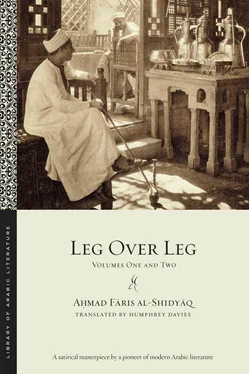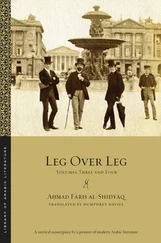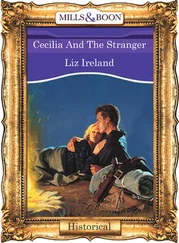or zuḥlūfah ,
“the sliding of children from the top of a mound to its bottom”
or ʿayāf ,
“ ʿayāf and ṭarīdah are two games they play”
or qāṣṣah qirfāṣah ,
“a game they play”
or ḥuzuqqah ,
“a kind of pastime”
or dabbūq ,
“a game”
or a zuḥlūqah ,
“a swing”
or shafalaqqah ,
“a game consisting of striking a person from behind and then throwing him to the ground”
or ʿafqah ,
“a game”
2.14.55
or a ʿuqqah ,
“such as children play with” 590
or qirq ,
“a pastime of the frivolous”
or kurrak ,
“a game they play”
or dibbā ḥajal ,
“a game”
or dukhayliyāʾ ,
“a game they play”
or diraqlah ,
“a children’s game”
or diraklah ,
“a game played by non-Arabs, or a kind of dance; or it may be Ethiopian”
or fiʾāl ,
“a children’s game consisting of hiding something in the dirt and then dividing the dirt into parts and saying, ‘Which part is it in?’”
or fiyāl ,
“a game played by Arab youths”
or dummah ,
“a game”
or a duwwāmah ,
[the “spinning top”] “that children play with, making it revolve; also called mirṣā ʿ”
2.14.56
or marghamah ,
“a game they play”
or shaḥmah ,
“a game they play”
or ʿaẓm Waḍḍāḥ ,
“a game they play”
or mihzām ,
“a stick on top of which fire is placed and which they play with”
or barṭanah ,
“a kind of diversion, also pronounced barṭamah ”
or a tūn ,
“a piece of cloth that they play with, like the kujjah ”
or ṭuban ,
“a game they play”
or qinnīn ,
“a game played by the Greeks on which they gamble”
or kubnah ,
“a game”
or damah ,
“a children’s game”
or a mijdhāʾ ,
“a round piece of wood with which the Arabs of the desert play”
or mikhāsāh ,
“to play mikhāsāh with someone is to play with him at walnuts, saying ‘Odd or even?’”
or quzzah ,
“a game”
or qullah ,
“two sticks that children play with”
he would open wide his mouth in a rictus and yell yet louder and more noisily, saying “A woman! A woman! Give me a woman to play with!” and if you charmed his ear with
2.14.57
a rabāb ,
[“rebec, spike-fiddle”] “too well known to require definition”
or a ʿarṭabah ,
“a lute, or a tambour, or drums, or the drums of the Ethiopians”
or a kūbah ,
“a lute, or a small goblet drum”
or a dirrīj ,
“a thing like a tambour that is played”
or ṣanj ,
“a thing made out of brass, one piece of which is struck against the other, or a stringed instrument that is played (an Arabized non-Arab word); the sound made by the ṣanj is referred to as ṣiyār ”
or wanaj ,
“playing on strings or a lute or any musical instrument”
or ʿūd ,
[“lute”] “too well known to require definition”
or mizmār ,
“what is blown on as though it were a reed; also called zamkhar or zanbaq or ṣulbūb or naqīb or qaṣṣābah or hubnūqah ”
or a mizhar ,
“the ʿūd (‘lute’) on which one plays” 591
or a shabbūr ,
“a trumpet, also called qabʿ or quthʿ or qunʿ or ṣūr ”
2.14.58
or a ṭunbūr ,
[“tambour”] “too well known to require definition”
or kannārāt ,
“lutes, or large tambourines, or drums, or the tambour”
or a kūs ,
“a drum”
or a barbaṭ ,
“a lute”
or a shiyāʿ ,
“a shepherd’s pipe”
or a hayraʿah ,
“a reed on which a shepherd blows”
or a duff ,
[“large tambourine”] “too well known to require definition”
or a mustuqah ,
“an instrument with which cymbals and the like are struck”
or a ʿarkal ,
“a drum or a tambourine”
or a ṣaghānah ,
“a musical instrument (Arabized)”
or a ṭubn ,
“a tambour or a lute”
or a qinnīn ,
“a tambour”
or a kirān ,
“a lute or the ṣanj ”
or wann ,
“the ṣanj ”
he would remain open-mouthed, crying out and saying, “A woman! A woman! Will you not charm me with a woman?” and if you were to feed him with
2.14.59
jūdhāb ,
“a dish made of sugar, rice, and meat”
or qabīb ,
“moist and dry curds mixed together”
or kabāb ,
[“kebabs”] “too well known to require definition”
or sannūt ,
“butter, or cheese, or honey, 592or a kind of date”
or lafītah ,
“thickened wheat gruel, or a broth resembling ḥays ” 593
or nafītah ,
“a dish thicker than sakhīnah ”
or ʿulāthah ,
“clarified butter and curds mixed together”
or ghabīthah ,
“curds kneaded with clarified butter; synonym ʿabīthah ”
or sikbāj ,
[“meat cooked in vinegar”] “too well known to require definition”
or ṭubāhajah ,
“sliced meat”
or nābijah ,
“a dish of the Days of Barbarism”
or akhīkhah ,
“flour made with clarified butter or oil”
or qafīkhah ,
“a dish made with dates and drippings”
or kāmikh ,
“pickles”
or tharīd ,
[“crumbled bread moistened with broth”] “too well known to require definition”
or rashīdiyyah ,
“a well-known dish; in Persian rishtah (‘noodles’)”
or rahīdah ,
“pounded wheat over which milk is poured”
or shahīdah ,
“grilled lamb”
or qadīd ,
“jerked, sun-dried meat”
or ḥanīdh ,
“ ḥanadha l-shāh means ‘he grilled the ewe by placing on top of it heated stones to cook it’; the result is called ḥanīdh ”
2.14.61
or zumāward ,
“a dish of eggs and meat, also called muyassar ”
or barābīr ,
“a dish made of parched ears of wheat and fresh milk”
or būrāniyyah ,
“a dish attributed to Būrān, daughter of al-ḥasan ibn Sahl, the wife of al-Maʾmūn” 594
or jāshiriyyah ,
“a dish”
or jaʿājir ,
“whatever is made of dough, such as figurines, that they then place in inspissated fruit juice and cook”
or ḥarīrah ,
“flour cooked with milk or fat”
or ḥakr ,
“clarified butter with honey that children lick”
or makhbūr ,
fatty dishes or 595“ khubrah , or tharīdah ḍakhmah (‘great tharīdah ’). . or food generally, or meat, or the part of a thing that is offered, or food that a traveler takes with him on his journey, or a large wooden bowl containing bread and meat for between four and five persons”
Читать дальше












